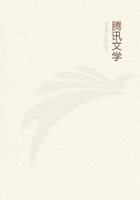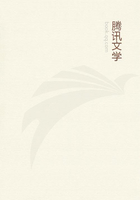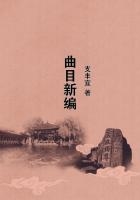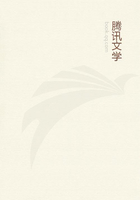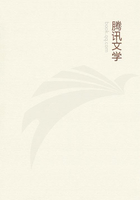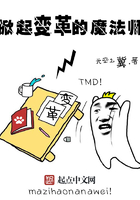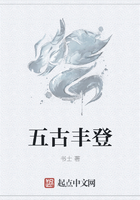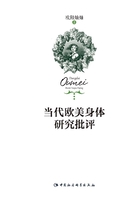In 1916 and 1917 Anderson published two novels mostly written in Elyria, Windy McPherson's Son and Marching Men, both by now largely forgotten. They show patches of talent but also a crudity of thought and unsteadiness of language. No one reading these novels was likely to suppose that its author could soon produce anything as remarkable as Winesburg, Ohio. Occasionally there occurs in a writer's career a sudden, almost mysterious leap of talent, beyond explanation, perhaps beyond any need for explanation.
In 1915-16 Anderson had begun to write and in 1919 he published the stories that comprise Wines- burg, Ohio, stories that form, in sum, a sort of loosely- strung episodic novel. The book was an immediate critical success, and soon Anderson was being ranked as a significant literary figure. In 1921 the dis- tinguished literary magazine The Dial awarded him its first annual literary prize of $2,000, the significance of which is perhaps best understood if one also knows that the second recipient was T.
S. Eliot. But Anderson's moment of glory was brief, no more than a decade, and sadly, the remaining years until his death in 1940 were marked by a sharp decline in his literary standing. Somehow, except for an oc- casional story like the haunting "Death in the Woods," he was unable to repeat or surpass his early success. Still, about Winesburg, Ohio and a small number of stories like "The Egg" and "The Man Who Became a Woman" there has rarely been any critical doubt.
No sooner did Winesburg, Ohio make its appear- ance than a number of critical labels were fixed on it: the revolt against the village, the espousal of sexual freedom, the deepening of American realism. Such tags may once have had their point, but by now they seem dated and stale. The revolt against the village (about which Anderson was always ambiva- lent) has faded into history. The espousal of sexual freedom would soon be exceeded in boldness by other writers. And as for the effort to place Wines- burg, Ohio in a tradition of American realism, that now seems dubious. Only rarely is the object of An- derson's stories social verisimilitude, or the "photo- graphing" of familiar appearances, in the sense, say, that one might use to describe a novel by Theodore Dreiser or Sinclair Lewis. Only occasionally, and then with a very light touch, does Anderson try to fill out the social arrangements of his imaginary town-- although the fact that his stories are set in a mid-American place like Winesburg does constitute an important formative condition. You might even say, with only slight overstatement, that what An- derson is doing in Winesburg, Ohio could be de- scribed as "antirealistic," fictions notable less for precise locale and social detail than for a highly per- sonal, even strange vision of American life. Narrow, intense, almost claustrophobic, the result is a book about extreme states of being, the collapse of men and women who have lost their psychic bearings and now hover, at best tolerated, at the edge of the little community in which they live. It would be a gross mistake, though not one likely to occur by now, if we were to take Winesburg, Ohio as a social photograph of "the typical small town" (whatever that might be.) Anderson evokes a depressed land- scape in which lost souls wander about; they make their flitting appearances mostly in the darkness of night, these stumps and shades of humanity. This visionhas its truth, and at its best it is a terrible if narrow truth--but it is itself also grotesque, with the tone of the authorial voice and the mode of composi- tion forming muted signals of the book's content. Figures like Dr. Parcival, Kate Swift, and Wash Wil- liams are not, nor are they meant to be, "fully- rounded" characters such as we can expect in realis- tic fiction; they are the shards of life, glimpsed for a moment, the debris of suffering and defeat. In each story one of them emerges, shyly or with a false assertiveness, trying to reach out to compan- ionship and love, driven almost mad by the search for human connection. In the economy of Winesburg these grotesques matter less in their own right than as agents or symptoms of that "indefinable hunger" for meaning which is Anderson's preoccupation.
Brushing against one another, passing one an- other in the streets or the fields, they see bodies and hear voices, but it does not really matter-- they are disconnected, psychically lost. Is this due to the par- ticular circumstances of small-town America as An- derson saw it at the turn of the century? Or does he feel that he is sketching an inescapable human condition which makes all of us bear the burden of loneliness? Alice Hindman in the story "Adventure" turns her face to the wall and tries "to force herself to face the fact that many people must live and die alone, even in Winesburg." Or especially in Wines- burg? Such impressions have been put in more gen- eral terms in Anderson's only successful novel, Poor White:
All men lead their lives behind a wall of misun- derstanding they have themselves built, and most men die in silence and unnoticed behind the walls. Now and then a man, cut off fromhis fellows by the peculiarities of his nature, be- comes absorbed in doing something that is per- sonal, useful and beautiful. Word of his activities is carried over the walls.

